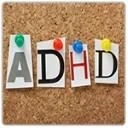Overview
Millions of individuals worldwide suffer with insomnia, which is characterized by chronic difficulties getting asleep, staying asleep, or achieving restorative sleep. It has a significant impact on health, raising the risk of depression, cardiovascular disease, and cognitive decline. While a number of things, such as stress, mental health issues, and poor sleep hygiene, can cause insomnia, new research reveals an unexpected possible cause: an iron deficiency. This article explores the complex relationship between iron deficiency and insomnia, examining how low iron levels might cause sleep disturbances and providing management strategies.
The Essentials of Body Iron
An essential mineral for many body processes is iron. It is an essential part of hemoglobin in red blood cells and plays a major role in the transfer of oxygen. Iron is also necessary for the synthesis of DNA and the creation of energy. Additionally, it plays a role in the immune system\'s normal operation as well as the manufacture of neurotransmitters, especially serotonin and dopamine, which are essential for mood regulation and sleep.
Causes and Prevalence of Iron Deficiency
The most prevalent dietary deficit in the world, iron insufficiency affects people of all ages. The main reasons are as follows:
Inadequate food intake: Iron deficiency can result from diets deficient in foods high in iron, such as red meat, beans, and fortified cereals.
Increased iron requirements: People who are highly physically active, pregnant women, and developing children frequently need more iron.
Malabsorption: Disorders like celiac disease or gastrointestinal operations can make it difficult for the body to absorb iron.
Chronic blood loss: People who frequently donate blood, have gastrointestinal bleeding, or are menstruating can lose a lot of iron in their bodies.
Sleep and Iron Deficiency: The Relationship
The Brain\'s Role of Iron
Because iron influences the synthesis and regulation of neurotransmitters that influence sleep, iron is essential to brain function. Dopamine and serotonin are two important neurotransmitters in question:
Dopamine: Necessary for both the sleep-wake cycle and wakefulness. Dopamine metabolism can be disturbed by iron deficiency, which might change sleep patterns and raise alertness levels while you\'re asleep.
Melatonin, the hormone that controls sleep-wake cycles, is derived from serotonin. Low iron levels can affect the synthesis of serotonin, which can disrupt the synthesis of melatonin and cause sleep disorders.
Periodic Limb Movement Disorder (PLMD) and Restless Legs Syndrome (RLS)
Sleeplessness and iron deficiency are frequently linked to the illnesses Restless Legs Syndrome (RLS) and Periodic Limb Movement Disorder (PLMD). Uncontrollably moving one\'s legs is a defining feature of RLS, typically accompanied by discomfort. It is usually in the evening or at night, which makes it hard to get to sleep. With PLMD, there are involuntary leg movements while you sleep, which causes your sleep to be fragmented and of low quality.
Studies reveal that iron deficiency plays a role in many disorders, especially in the brain. Studies have revealed that the cerebrospinal fluid of people with RLS frequently has reduced iron levels, indicating that brain iron shortage is a major factor in these sleep-related movement disorders.
Empirical Data Connecting Iron Deficiency to Sleep Disorder
Numerous investigations have looked into the connection between insomnia and iron deficiency. Important conclusions consist of:
Teens and Sleep: An adolescent study that included teenagers discovered that those who were iron deficient had a higher chance of having sleep disruptions, such as trouble falling and staying asleep.
Pregnant Women: Sleeplessness is a common complaint among pregnant women, who are more susceptible to iron deficiency. Pregnancy-related iron supplementation may enhance sleep and lessen symptoms of insomnia, according to research.
RLS and Insomnia: Several studies have demonstrated that addressing iron deficiency in RLS patients greatly enhances sleep quality and lessens the symptoms of insomnia.
Mechanisms: How Sleep Disorders Are Caused by Iron Deficiency
Aberrant Neurotransmitter Function
As previously mentioned, the synthesis of serotonin and dopamine depends on iron. These neurotransmitters\' equilibrium can be upset by iron deficiency, which can result in elevated arousal, trouble falling asleep, and trouble staying asleep. It may be more difficult to get sound sleep at night due to increased brain activity brought on by the disturbance of dopaminergic pathways, in particular.
Sleep and Hypoxia
Reduced oxygen transmission in the blood as a result of iron deficiency anemia causes tissue hypoxia, or low oxygen levels. Because the brain is so sensitive to oxygen, low oxygen levels can throw off the body\'s circadian rhythm. Increased sympathetic nervous system activity brought on by chronic hypoxia may result in frequent awakenings and disrupted sleep.
Identifying Iron Insufficiency
Evaluating iron deficiency entails looking at anemia markers as well as iron levels. Typical exams consist of:
Serum ferritin: Refracts the body\'s stored iron. Iron deficiency is indicated by low levels.
Hemoglobin: Indicates how well blood can carry oxygen. Anemia is suggested by low hemoglobin.
Serum iron and total iron-binding capacity (TIBC): Measures the amount of iron in the blood as well as how well the blood can carry iron.
Therapy and Administration
Supplementing with Iron
The main course of treatment for people with an iron deficient diagnosis is supplementation. While oral iron supplements are frequently recommended, those with severe deficiencies or problems with iron absorption may require intravenous iron. It\'s critical to heed physician recommendations regarding supplements dosage and duration.
Dietary Modifications
One way to prevent and treat iron deficiency is to increase the amount of iron-rich foods you eat. Iron-rich foods include:
Fish, poultry, and red meat are good sources of heme iron because they are more readily absorbed by the body.
Sources of non-heme iron include spinach, beans, lentils, and fortified cereals. The absorption of these can be improved by eating them with meals high in vitamin C, such as citrus fruits.
Handling the Root Causes
It\'s critical to treat the underlying causes of iron deficiency. This could entail managing severe menstrual bleeding, treating gastrointestinal disorders, or changing lifestyle choices that lead to long-term blood loss.
What Sleep Hygiene Is All About
While treating insomnia iron deficiency is essential, excellent sleep hygiene can help enhance the quality of your sleep. Suggested actions comprise:
Maintain a Regular Sleep Schedule: Set aside time each day to go to bed and wake up.
Establish a peaceful, calm, and dark sleeping space for yourself.
Steer Clear of Stimulants: Restrict your intake of caffeine and nicotine, especially after dark.
Relaxation Methods: Before going to bed, try some relaxation methods like deep breathing, meditation, or reading.
In summary
A common problem that can seriously impair sleep quality and cause insomnia is iron deficiency. Low iron can cause disorders like restless legs syndrome (RLS) and interfere with neurotransmitter production, making it difficult to go asleep and stay asleep. The correlation between iron deficiency and insomnia highlights the significance of accurately diagnosing and treating iron deficiency in order to enhance sleep quality. People can improve their general health and quality of sleep by combining dietary changes, medical intervention, and excellent sleep hygiene.
Treating iron deficiency improves general health and reduces insomnia, demonstrating the importance of this necessary element in our daily life.


